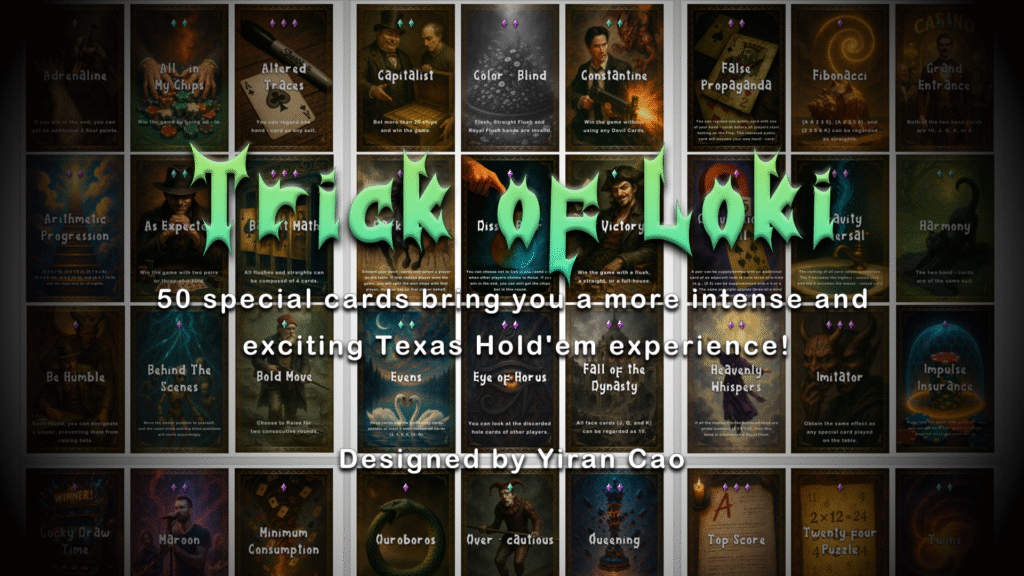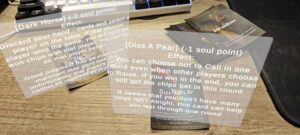MSc Serious Games & Virtual Reality School of Innovation & Technology
Yiran Cao

Current anti-gambling game projects mainly focus on financial losses but often overlook the psychological harms. Given that gambling disorder stems from mental health issues, this is a crucial oversight. By gamifying the addiction cycle and introducing soul points (an escalating risk-reward dilemma) and special cards (mimicking cheating behaviors), this project reveals how immense stress can distort decision-making.
This project has designed a serious board game based on gambling disorder and its harmfulness, and integrated augmented reality (AR) technology. This game adds a soul point and special card mechanism on the basis of the Texas Hold’em gameplay. Players can use devil cards that reduce soul points to gain an advantage in the game, or meet the requirements of angel cards to restore soul points. Running out of chips or having one’s soul dissipate means being eliminated from the game. By simulating how stress drives a harmful cycle – winning and self – restraint relieve stress, while losing and self – sacrifice exacerbate it – this game reveals the dual destruction of gambling on wealth and mental health, filling the gap in the market for game projects that emphasize psychological harm rather than economic loss.
Contact

A Serious Board Game That Combines AR Technology and Is Based on Gambling Disorder and Its Harmfulness
Gambling Disorder (GD), recognized as a behavioral addiction with neurobiological parallels to substance use disorders, inflicts severe psychological harms alongside financial losses. Traditional interventions often prioritize economic consequences, overlooking psychological trauma, and exhibit low long-term efficacy. This research addresses this gap by developing Trick of Loki, an innovative serious board game integrated with Augmented Reality (AR) technology. The game simulates GD’s dual destruction of wealth and mental health through Texas Hold’em mechanics, augmented by a “soul point” system and special cards that gamify stress-induced risk-taking and cheating behaviors.
Utilizing the Cognitive Behavioral Game Design (CBGD) framework and iPlus methodology, the game was designed and evaluated through multi-round play-tests with 31 target users. Player Experience of Need Satisfaction (PENS) scale data revealed high immersion and effective conveyance of GD’s psychological harms. Key findings confirmed that AR-enhanced tutorials reduced learning thresholds, while soul points and special cards successfully mirrored GD’s cyclical stress-reward dynamics. However, rule complexity and card balance were identified for optimization.
The study demonstrates that integrating AR with serious games offers a potent tool for”randomness cognitive correction,” emphasizing psychological harm over financial loss—a critical shift in GD intervention. Trick of Loki provides a validated, immersive platform for mental health education, highlighting pathways for future refinement in prevention and therapy strategies.

